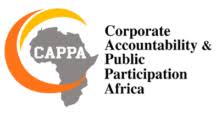A new report on the state of the tobacco industry interference in Nigeria has shown a marked increase in the industry’s meddling in public health policies, especially in tobacco control measures.
The report, tagged ‘Nigeria Tobacco Industry Interference Index 2023’ and produced by Corporate Accountability and Public Participation Africa (CAPPA) with support from Bloomberg Philanthropies through the Centre for Good Governance, revealed that Nigeria’s ratings dropped from 53 points in 2021 to 60 in 2023.
According to the report, the major decline is manifest in the Nigerian government’s challenges and failure to adhere to transparency mechanisms, and disclosure of exchanges with the industry as mandated by the National Tobacco Control Act 2015 and the National Tobacco Control Regulations 2019. These breaches, the report noted, were exploited maximally by the tobacco industry to interfere in public health policies and deliberations.
Other areas of concern raised in the report include the unnecessary and unhealthy interaction between the tobacco companies and public officials, mostly in the agriculture sector where top government officials participated in the industry’s activities and openly lauded them.
Tobacco: Experts task media on global treaty implementation, health risks
Tobacco usage hampering Nigeria’s SDGs attainment – NTCA
“The tobacco industry’s use and loud celebration of its Corporate Social Responsibility (CSR) activities in the media and on social platforms as a way of enhancing its image to attract unsuspecting individuals, thereby creating a perception of the industry and its products as responsible and desirable. These CSR initiatives are further promoted by the endorsement of state authorities, who associate and collaborate with the industry to execute socio-economic empowerment programmes,” the report said.
It further decried the weak enforcement of preventive measures, including ambiguities in the National Tobacco Control Act (NTCA) 2015 and its Regulations of 2019, noting that these challenges inadvertently allowed the tobacco industry to operate without accountability in certain instances.
“For instance, while the NTCA mandates the tobacco industry to submit annual reports on tobacco and tobacco products, it also retains that the minister may choose to either disclose or withhold this information from the public. This optional transparency makes it difficult for public health advocates to verify whether compliance is being enforced or not.
“The industry’s continued participation in policy development in Nigeria such as its enjoyment of invitations from the government interagency bodies and agencies to meetings where classified resolutions on public health are reached,” it added.
To address these challenges, the report urged the Nigerian government to fully implement the National Tobacco Control Regulations 2019 and review ambiguities in the law to block the gaps through which tobacco industry could exploit to interfere in public health and other policies of the government.
“The Nigerian government must work to ensure that public officials in relevant ministries, departments and agencies sign conflict-of-interest forms periodically to remind them of commitments or obligations that may compromise their office and operations,” Policy and Research Officer of CAPPA, Zikora Ibeh, said at a press briefing held in Lagos on Tuesday to launch the report.
“Additionally, the report also tasked state authorities to build intergovernmental synergy at all levels by establishing clear protocols for the full disclosures of minutes and proceedings from meetings and interactions with the tobacco industry. To begin, it advised relevant Ministries, Departments and Agencies (MDAs) to consistently update their websites and other information platforms to facilitate the easy dissemination of information and engender transparency.
“Researchers at CAPPA measured and evaluated incidents of tobacco industry interference in Nigeria against 20 questions based on the World Health Organization Framework Convention on Tobacco Control’s (WHO FCTC’s) Article 5.3 guidelines. These guidelines urge member states to adopt robust measures for safeguarding their tobacco control policies from the influence of the tobacco industry,” Ibeh added.
Earlier in his opening remarks, CAPPA Executive Director, Akinbode Oluwafemi said while Nigeria’s National Tobacco Control Act and its Regulations had largely checked the activities of tobacco corporations and entities, the industry had exploited some weaknesses in these laws and gaps in the system to interfere in tobacco control.
“Globally, the tobacco industry has intensified efforts to derail public health policies, undermining the actions of governments to safeguard the well-being of their citizens. Nigeria, sadly, is not an exception. Our report highlights how tobacco companies use a slew of tactics to overwhelm national protective health measures, preying on governmental regulations and cohesion gaps,” he said.

 Join Daily Trust WhatsApp Community For Quick Access To News and Happenings Around You.
Join Daily Trust WhatsApp Community For Quick Access To News and Happenings Around You.


